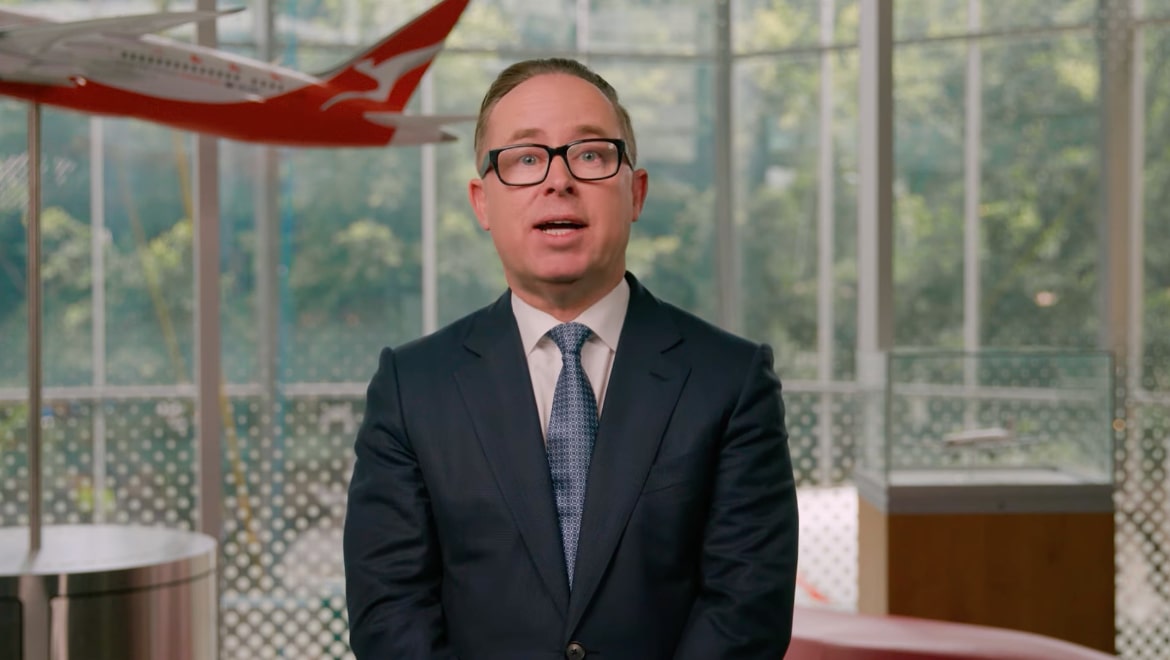Qantas chief executive Alan Joyce has said “competitive” Australians should be beating other nations to produce large quantities of sustainable aviation fuel (SAF).
Speaking at the CBA’s Sustainability Conference, Joyce argued the country should be taking advantage of its huge landmass to develop SAFs, which are often derived from used cooking oil and other waste products.
The Flying Kangaroo is currently importing the fuel from overseas and has pledged to invest $50 million to support the establishment of a local industry.
“Australians are the most competitive people I’ve ever come across,” Joyce said. “We should be leading the world on this. We should be making it into a World Cup. I think we’d win if that were the case.”
Joyce has previously been a big advocate of encouraging more production of SAFs in Australia, branding it a “huge opportunity” that would create “a huge amount of jobs”.
“It’s a shame if Qantas meets its 10 per cent sustainable aviation fuel target in 2030 by just buying it offshore. That would be terrible outrage in my mind, and it’s a terrible dropping of the ball in Australia.”
His comments came as Air New Zealand this week released its own sustainability report.
“The use of sustainable aviation fuel is the single biggest decarbonisation lever we can pull,” it read. “There is no SAF produced in New Zealand, so this year we have partnered with the government to scope the feasibility of domestic SAF production.”
Air New Zealand hopes SAF will make up 1 per cent of its fuel by 2023.
The airline also plans to adopt electric and hydrogen-powered aircraft to replace its fleet of turboprops, starting with small 1-to-9-seater craft as soon as next year to 2025, 10-to-50-seat aircraft from 2026 to 2030, and large 50+ aircraft in 2031 to 2035.
More immediately, Air New Zealand is making changes to its current services, which include reducing weight in premium cabins by 20 per cent and cutting 28 million fossil-fuel-derived single-use plastic items in economy cabins.
The progress by Qantas and Air New Zealand follows the federal government earlier this week agreeing to establish a Sustainable Aviation Fuel (SAF) council, not unlike the UK’s ‘Jet Zero’ council.

















Chris Morris
says:This blokes a joke